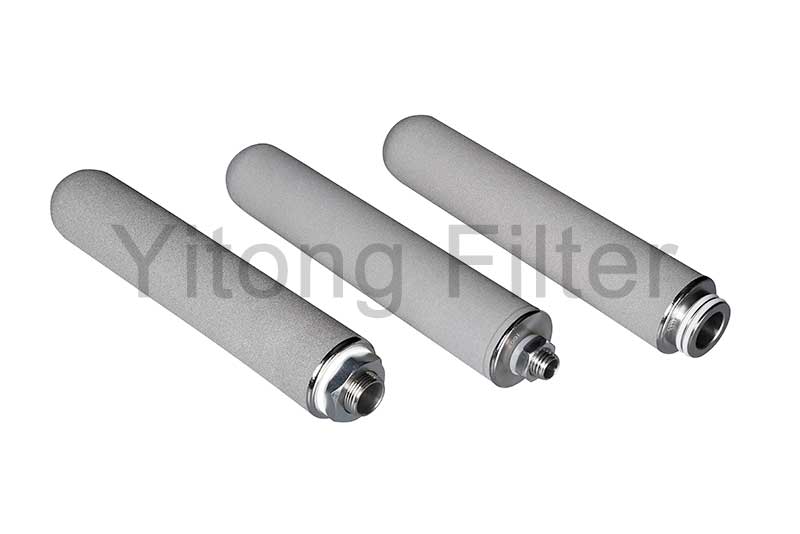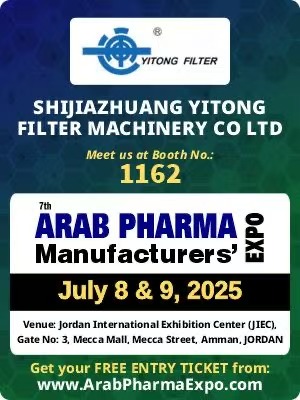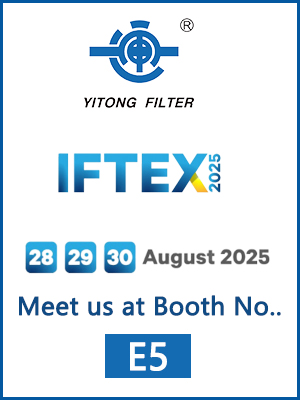Jul. 14, 2023
The sintered titanium metal powder filter cartridge is a new type of filtering material and a filtration element based on the foundation of inorganic material science. The product is sintered in one piece and does not require cutting. It has high filtration accuracy, good air permeability, high mechanical strength, and high material reuse rate. It is particularly suitable for applications in complex structures with numerous components. The sintered titanium metal powder filter cartridge has advantages that organic filter materials cannot match, making it an ideal product to replace separation components such as PP, PE, PA, PES, PTFE, etc. in recent years.

Performance of Titanium Rod Filter Cartridge:
1. Uniform structure, narrow pore size distribution, high separation efficiency.
2. High porosity, low filtration resistance, high permeation efficiency.
3. High temperature resistance, usually can be used normally below 280 degrees Celsius.
4. Good chemical stability, acid and alkali corrosion resistance, and oxidation resistance.
5. No particle shedding, does not cause secondary pollution to the original liquid, meets the requirements of food hygiene and pharmaceutical GMP.
6. Good mechanical performance, can be pressure-filtered and suction-filtered, easy to operate.
7. Low pressure drop, small footprint, high flow rate.
8. Strong antimicrobial capability, does not interact with microorganisms.
9. Good forming process, overall length without welding can reach 1000 millimeters.
10. Regenerable online, easy to clean, long service life (several times that of membrane filter cartridges).
The titanium rod filter cartridge, with its superior performance, can be widely used in pharmaceutical industry, water treatment industry, food industry, biotechnology, chemical industry, petrochemical industry, metallurgical industry, and gas purification field. It is a new material with broad development prospects. Its typical applications include:
1. Pharmaceutical industry: removal of carbon in large infusions, small injections, eye drops, and security filtration before terminal filtration in concentrated preparation links.
2. Raw material pharmaceutical production: impurity removal, decarbonization filtration, and precision filtration of materials.
3. Water treatment industry: security filtration of ultrafiltration, RO, and EDI systems, filtration after ozone sterilization, and ozone aeration.
4. Food and beverage industry: clarification filtration of beverages, liquor, beer, vegetable oil, mineral water, soy sauce, vinegar.
5. Chemical industry: decarbonization filtration and precision filtration of liquid products, liquid raw materials, pharmaceutical intermediates, filtration and recovery of ultrafine particles and catalysts, precision filtration after resin adsorption, impurity removal of system heat transfer oil and materials, catalytic gas purification, etc.
6. Oilfield produced water filtration, security filtration before reverse osmosis in seawater desalination.
7. Dye industry: high-temperature decarbonization and bleaching clay filtration.
8. Gas purification: vapor, compressed air, catalyst filtration.
Precautions for Using Titanium Rod Filter Cartridges:
1. Titanium filter cartridges are consumables. Although they are more durable compared to other filtering elements, care should be taken during cleaning and disassembly to avoid scratches, impacts, drops, etc., to prevent human damage. It is strictly prohibited to apply force on the surface of the filter cartridge with tools.
2. Generally, the filtrate flows from the outside to the inside of the filter cartridge, and reverse filtration is not recommended.
3. When filtering, gradually apply pressure to the desired working pressure, and avoid rapidly increasing the pressure by fully opening the valve.
4. The typical working pressure of the filter cartridge is ≤0.45 MPa. When the pressure exceeds 0.45 MPa, it is necessary to perform online backflushing with clean air or liquid. The backflushing pressure is generally ≤0.6 MPa.
5. When performing backflushing or backwashing of the titanium filter cartridge, it is generally first backflushed with clean gas at a pressure of 1.2-1.5 times the working pressure for 3-5 seconds. After repeating this operation 4-6 times, it can be followed by backwashing with clean liquid for 3-5 minutes, with 2-3 cycles.
6. If the pressure drop is still significant after backflushing or backwashing the filter cartridge online, it should be promptly removed for cleaning.
FAQ about Titanium Rod Filter Cartridges:
1. Is there a standard part for sintered filter cartridges? Can standard filter cartridges be purchased?
Answer: I'm sorry, sintered filter cartridges are generally non-standard parts. Usually, they are produced by manufacturers according to detailed numerical parameters specified by customers, such as dimensions, shapes, materials, filtration accuracy, etc.
2. What materials are commonly available for sintered filter cartridges?
Answer: Bronze, brass, stainless steel, titanium, and various alloys are common options. Bronze is commonly used in the sintered filter cartridge industry and is a lower-cost alloy metal. The selection of other metal types or alloys by customers depends on different usage environments, such as hardness, corrosion resistance, high-temperature resistance, etc. Stainless steel is also widely used because of its excellent heat resistance and corrosion resistance. However, for more complex environments, nickel alloys may be required, which have higher costs and processing difficulties, resulting in a higher price.
3. What should be considered when designing a metal sintered filter cartridge?
Answer: When selecting a filter cartridge, consider the filtration medium, filtration accuracy, filtration flow rate, and operating environment. Different applications require different filters, and the following points need to be considered in the design:
1) Pore size: It refers to the micrometer level and defines the precision of the medium you need to filter.
2) Pressure drop: It refers to the pressure loss generated when the liquid or gas passes through the filter. You need to determine your operating environment and provide it to the filter manufacturer.
3) Temperature range: The filter cartridge must withstand the temperature of the working environment during its operation.
4) Strength: Sintered filter cartridges are an ideal choice for high-strength requirements. Another advantage is that their strength is the same in both forward and reverse flow.
4. What information should be provided to the manufacturer to place an order?
1) Application: including usage environment, filtration accuracy, etc.
2) Filtration medium
3) Consider corrosion resistance, such as acid and alkali resistance
4) Any special operating conditions, such as temperature, pressure
5) Types of contaminants encountered
6) Dimensions, shapes, pressure
7) Quantity needed
8) Installation requirements

